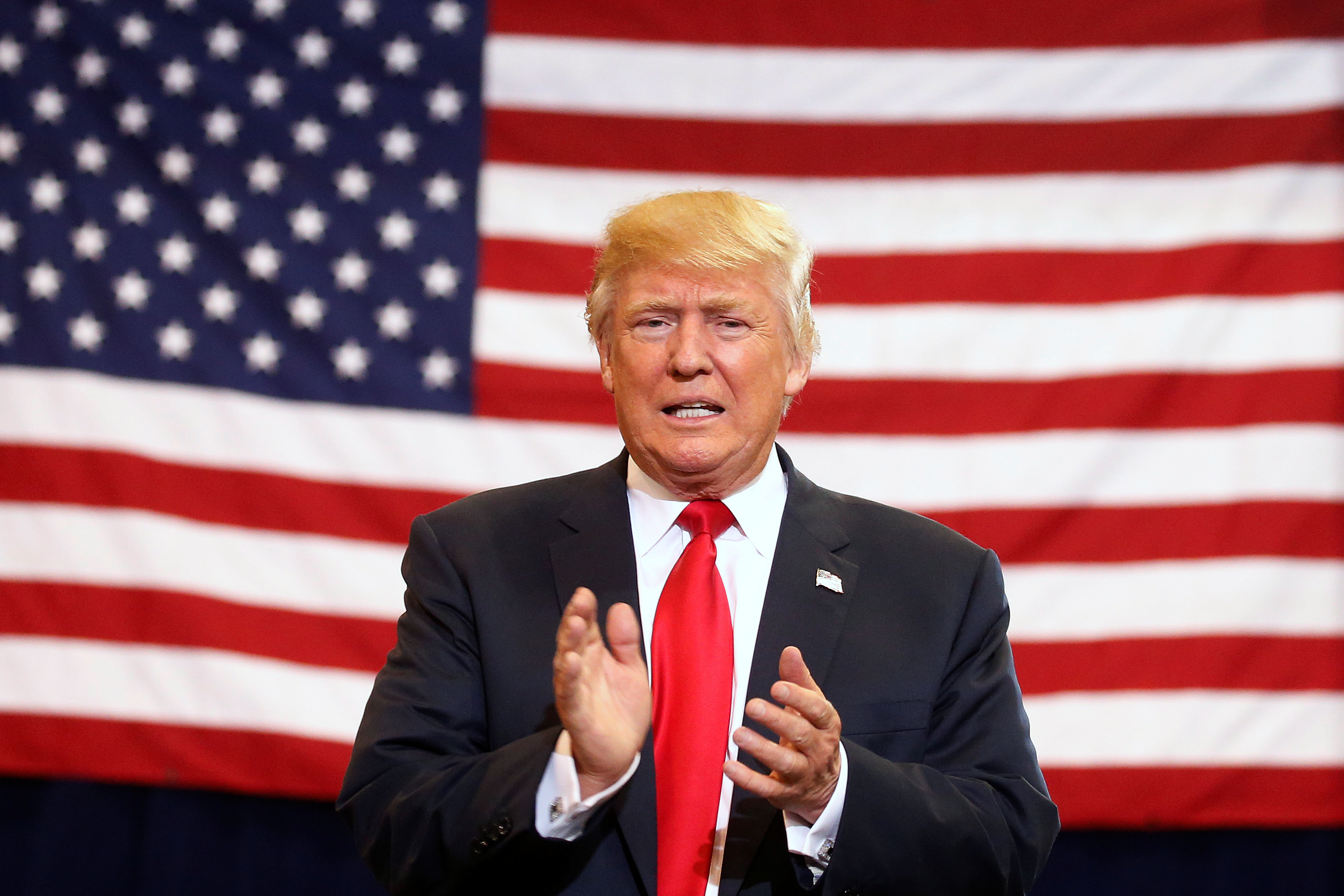Why Trump's Dodd-Frank replacement is dangerously weak
When it comes to banking regulation, the devil is in the details


Among President-elect Donald Trump's many promises is to "dismantle" Dodd-Frank, the sweeping reform of the financial industry signed into law by President Obama in 2010. The most likely route will be the CHOICE Act put together by Rep. Jeb Hensarling (R-Texas), who heads up the House Financial Services Committee. This will be easier said than done, however.
Neither Trump nor the GOP want to be seen as the handmaidens of Wall Street. But Dodd-Frank was the big regulatory response to the 2008 financial crisis. Hensarling tries to thread this needle by offering banks and financial firms a choice: Either put up with Dodd-Frank's massive web of rules or meet a 10-percent capital requirement.
On one side of any bank's balance sheet are its assets: The various financial obligations the bank is owed. On the other side of the balance sheet sits the debt the bank owes others, plus its capital — that's, respectively, the amount of money shareholders have invested in the bank, plus all the profits the bank hasn't sent them yet. A 10-percent capital requirement means a bank's capital has to be at least 10 percent of its assets.
The Week
Escape your echo chamber. Get the facts behind the news, plus analysis from multiple perspectives.

Sign up for The Week's Free Newsletters
From our morning news briefing to a weekly Good News Newsletter, get the best of The Week delivered directly to your inbox.
From our morning news briefing to a weekly Good News Newsletter, get the best of The Week delivered directly to your inbox.
If a whole bunch of assets suddenly default — like what happened in 2008 — high capital requirements mean the bank has plenty of cash on hand to pay off its own debts. The higher the capital cushion, the logic goes, the higher the bank's chances are of surviving a crisis.
So under the CHOICE Act, if a bank meets that 10-percent threshold, it's exempted from complying with a ton of Dodd-Frank's other regulations.
Now, Dodd-Frank is a massively complex regulatory apparatus, which comes with its own problems. Trading all that complexity in for one big and simple rule that ensures a bank is safe from collapse isn't a crazy idea. But the devil is in the details — particularly those that ensure a bank is safe.
Crises can come at a bank from all sorts of directions. Maybe it underestimated how risky its assets are. (Again, see the 2008 mortgage crisis.) Or maybe a bank owes too much short-term debt and not enough long-term debt. That's why Dodd-Frank attempts to regulate all aspects of a bank's balance sheet. But the CHOICE Act relies on capital requirements as its sole line of defense. In which case, 10 percent isn't anywhere near high enough.
A free daily email with the biggest news stories of the day – and the best features from TheWeek.com
For instance, Neel Kashkari, a Federal Reserve official appointed by Republicans, concluded all banks with more than $250 billion in assets should face a 23.5-percent capital requirement — more than twice Hensarling's threshold. And every major bank — JPMorgan Chase, Wells Fargo, Bank of America, Citigroup, Goldman Sachs, etc — falls well above the $250 billion mark. Furthermore, a handful of those financial giants also qualify as "systemically important" under Dodd-Frank's rules; Kashkari said those banks should face a 38-percent capital requirement.
But the CHOICE Act also does away with the government's ability to determine if any bank is "systemically important."
The whole point of this label is it comes with much stricter regulatory requirements. To avoid facing them no bank wants to become big and complex enough to meet the "systemically important" threshold. That's clearly the effect Kashkari was trying to replicate with a 38-percent capital requirement, which would be so onerous, and make it so hard to be profitable, that banks would likely break themselves up rather than be subject to it.
If you're looking to make the financial system safer while also cutting down on regulatory red tape, putting a hard ceiling on how big banks can get is one worthwhile approach. So far, the CHOICE Act has no way of doing that.
Finally, there's the question of enforcement. Under Hensarling's language, any bank that isn't in compliance with the 10-percent capital requirement has one year to get its act together. That's a long lag time: You could imagine a bank having a whole year in which it's neither complying with the capital requirements or the alternative Dodd-Frank regulations. Then if it does come back into compliance with the capital requirement, it could fall back out again. Wash, rinse, repeat.
Alternatively, if it runs out the year and still fails to meet the capital requirement, regulators have to be willing to bring the hammer down on them. That will be the job of the numerous officials Trump and the GOP will appoint to various agencies. Given the Republicans' ideological predilections, I'm not confident they'll appoint people with the stomach to enforce the rules with serious penalties.
This isn't the end of the problems with the CHOICE Act: It's looking to weaken the Consumer Financial Protection Bureau, and it will be throwing out some regulations like the Volcker Rule entirely, not just as part of the tradeoff with capital requirements. It will also scuttle a host of regulations aimed at community banks, based on the (almost certainly incorrect) assumption that those rules are responsible for smaller banks' demise.
But the idea of allowing banks to choose between Dodd-Franks' regulatory scheme and the 10-percent capital requirement is how the CHOICE Act will be sold. That's how Trump and the GOP will claim they aren't doing Wall Street a favor, but just reining in the financial industry with a simpler and more efficient approach.
Even under the best circumstances, it's not clear that tradeoff is a great idea. But this isn't the best circumstances. At a bare minimum, the CHOICE Act's architects need to go back to the drawing board.
Jeff Spross was the economics and business correspondent at TheWeek.com. He was previously a reporter at ThinkProgress.
-
 Breaking news: the rise of ‘smash hit’ rage rooms
Breaking news: the rise of ‘smash hit’ rage roomsUnder the Radar Paying to vent your anger on furniture is all the rage but experts are sceptical
-
 Did markets’ ‘Sell America’ trade force Trump to TACO on Greenland?
Did markets’ ‘Sell America’ trade force Trump to TACO on Greenland?Today’s Big Question Investors navigate a suddenly uncertain global economy
-
 ‘We know how to make our educational system world-class again’
‘We know how to make our educational system world-class again’Instant Opinion Opinion, comment and editorials of the day
-
 The billionaires’ wealth tax: a catastrophe for California?
The billionaires’ wealth tax: a catastrophe for California?Talking Point Peter Thiel and Larry Page preparing to change state residency
-
 Bari Weiss’ ‘60 Minutes’ scandal is about more than one report
Bari Weiss’ ‘60 Minutes’ scandal is about more than one reportIN THE SPOTLIGHT By blocking an approved segment on a controversial prison holding US deportees in El Salvador, the editor-in-chief of CBS News has become the main story
-
 Has Zohran Mamdani shown the Democrats how to win again?
Has Zohran Mamdani shown the Democrats how to win again?Today’s Big Question New York City mayoral election touted as victory for left-wing populists but moderate centrist wins elsewhere present more complex path for Democratic Party
-
 Millions turn out for anti-Trump ‘No Kings’ rallies
Millions turn out for anti-Trump ‘No Kings’ ralliesSpeed Read An estimated 7 million people participated, 2 million more than at the first ‘No Kings’ protest in June
-
 Ghislaine Maxwell: angling for a Trump pardon
Ghislaine Maxwell: angling for a Trump pardonTalking Point Convicted sex trafficker's testimony could shed new light on president's links to Jeffrey Epstein
-
 The last words and final moments of 40 presidents
The last words and final moments of 40 presidentsThe Explainer Some are eloquent quotes worthy of the holders of the highest office in the nation, and others... aren't
-
 The JFK files: the truth at last?
The JFK files: the truth at last?In The Spotlight More than 64,000 previously classified documents relating the 1963 assassination of John F. Kennedy have been released by the Trump administration
-
 'Seriously, not literally': how should the world take Donald Trump?
'Seriously, not literally': how should the world take Donald Trump?Today's big question White House rhetoric and reality look likely to become increasingly blurred
